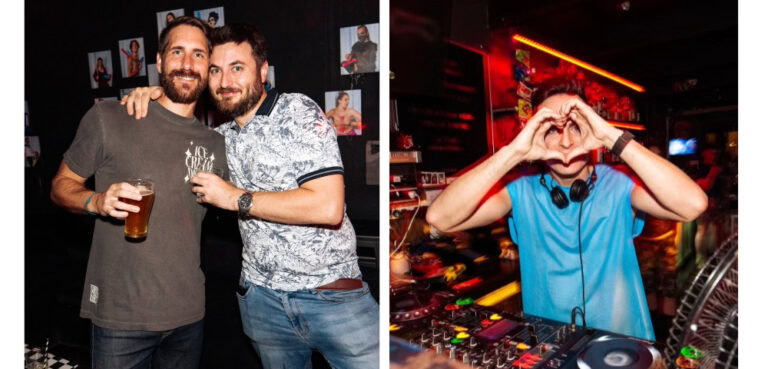
Life changes
I guess I am not unlike a lot of gay men who have spent a great deal of their lives travelling the world.
While I was born in New Zealand, my father was an army officer and was posted to Canberra, so I spent much of my early childhood there. I have since lived in Europe, the UK and the States, but these days Sydney is home.
It was not until I was about 13 that we moved back to New Zealand and I completed high school. I then went to university and became an officer in the navy.
Through my dad, it was a lifestyle I knew, but I also think it was something about wanting to be a guy and knowing that stuff was happening and finding it all too confusing.
While I enjoyed my time in the navy, I was completely in the closet. I kept being gay right away from the navy.
In the navy in the 70s and 80s, the sailors had an attitude that you could go ashore in foreign ports and have sex with trannies or get a blowjob from another guy, as long as you were the top partner. But not on board ship, as most guys were so guarded about it.
I was sent to San Francisco in 1980 and, at that time, it was the gay centre of the world. It was right after gay liberation and just before AIDS. It was an amazing time.
Curiously enough, a few years later, I got married. I loved my wife Bridget very much and it was a liberating time.
Bridget is a lesbian but she wasn’t dealing with it at that stage, so over the next five years, we went on this transition together of accepting who we really were. We had a daughter, who is now 20 and at university in New Zealand.
I had done quite well in the navy and become a Lieutenant Commander, but I wanted to be who I was, and so I left the navy in 1986. I went into human resources in a healthcare organisation, met a guy I thought I was in love with, before meeting another guy and setting up house together.
About the same time, I found out I was HIV-positive. I seroconverted some time in the three years before that, probably in a leather bar in Amsterdam.
When I got the diagnosis, I was not surprised or panicked. My doctor was really upbeat about it and there were treatments on the horizon. I had a sense of relief in some ways as I had been tested so many times before, so it took that angst away as it was clear what I was now dealing with.
Then I met Peter and we settled down but, in 1997, he got really sick. The treatments were not happening in New Zealand by this stage. We were party boys and coming to Sydney regularly, so we decided to move here to get better treatments.
Then I saw a policy job advertised with ACON, which was the start of my engagement in this area. Later I was a treatments officer at AFAO and then in 1999 I went back to ACON. I also worked with NAPWA.
My engagement in this area is more about being a gay man rather than being a positive man. The whole issue for me was about this enormous impact HIV had on gay men, so I thought I had to do something about it. I have never seen my serostatus as being an identity. It is something I have, but not my identity.
But I do think, being HIV-positive and working in the field, you can get burnt out. In 2003, I hit rock bottom and took a year off. I had major depression and was going through the end of a relationship, burning the candle at both ends and partying far harder than I should. I took a year off and just chilled. It was time to take stock.
In 2004, I decided to come back to it and the job as executive officer of PLWHA came up. PLWHA has changed with the way the epidemic has changed.
You can’t be all things for all people. There would be about 10,000 positive people living in NSW, and the vast majority don’t have any contact with us. We tend to deal with the people who have needs.
It always fascinates me that the biggest number of calls we get is about travel. The average age of a person living with HIV in this state is now 46 years, and people with HIV now can access life to its fullest extent.
But there are other people with HIV who aren’t doing so well. Throw into that mix issues like drug and alcohol problems and mental health issues, and it becomes a bigger experience.
A few years ago, I met my partner Lance and he turned out to be the relationship I had always wanted. I’ve recently turned 53 and am feeling far more comfortable in myself.
The last dance party I went to was in 2002 and while I look back on those days with some fondness, I don’t miss them. I have a garden, which is great when I get home as it helps clear my head. I am really happy to have moved on.
Interview by John Burfitt









